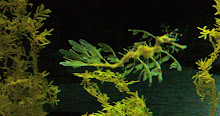“A good many times I have been present at gatherings of people who, by the standards of the traditional culture, are thought highly educated and who have with considerable gusto been expressing their incredulity at the illiteracy of scientists. Once or twice I have been provoked and have asked the company how many of them could describe the Second Law of Thermodynamics, the law of entropy. The response was cold: it was also negative. Yet I was asking something which is about the scientific equivalent of: 'Have you read a work of Shakespeare's?'
I now believe that if I had asked an even simpler question — such as, What do you mean by mass, or acceleration, which is the scientific equivalent of saying, 'Can you read?' — not more than one in ten of the highly educated would have felt that I was speaking the same language. So the great edifice of modern physics goes up, and the majority of the cleverest people in the western world have about as much insight into it as their Neolithic ancestors would have had.”
As an idea, “the two cultures” has both outgrown and outlived its inventor ( is an idea “invented? discovered?) and it gets revisited regularly- for example last year in “Seed” magazine-
http://seedmagazine.com/content/article/are_we_beyond_the_two_cultures/
It is an idea I think about a lot, particularly now, that I divide my time between arts and sciences: writing- mostly about science- but about other topics, too, such as Bushido, rock music and Zen Buddhism (not at the same time...) under different aliases. Over the last couple of weeks, I have been- variously- reading scientific papers about dung beetles and turtles, working on a popular science book and completing my latest collection of limited-edition art-prints: a series of botanical images called “Spring Florals”. It is an odd schedule and, frankly, fairly punishing at the moment, for all it is good fun. Far weirder, however, is the reaction of other people to this mixed-bag of projects.

On the one hand, interdisciplinary projects are very fashionable in science-grant-awarding circles, and, likewise, being a “polymath” (for want of a better word) is de rigueur in internet-land: how else can one explain the model Katie Price (Jordan) being listed by Wikipedia as an “actress, author, business woman, media personality, philanthropist, glamour model, producer, singer, song-writer and television personality”?
John Brockman wrote nearly twenty years ago about the “third culture” (an idea first mooted by CP Snow) of people intermediate between arts and sciences forming a sort of “ideas/ideology bridge” (my words, not his) between the two camps.
http://www.edge.org/3rd_culture/
It is certainly easy to think of people in public life who would fit in this category. Prof. Steve Jones, Prof. Richard Dawkins, Prof. Brian Cox...
On the other, hand, this attitude filters very poorly into real life. For example, I have an “arty” friend who has enormous trouble taking my photography seriously on the grounds that I trained as a scientist and therefore, have nothing to bring to the world of art. Equally, I have a science-trained friend, who considers my arty pursuits to be not worthy of my time: beneath a scientist almost. Equally, numerous universities (at this point, I will refrain from naming and shaming) pay lip service to the importance of science communication and this “third culture” but stubbornly refuse to pay for it or even to consider what it might involve, beyond employing a few PR staff and doing press releases.
In the fifty years since Baron Snow’s speech, we have put man on the moon, cloned sheep , discovered quarks and pulsars but we are still having trouble with the concept of a “third culture”.
- (c) V Neblik, 2010. All rights reserved.









This is a very interesting and thought provoking article. I do agree with your sentiments. It is sad that people do not seem to think that 'untrained' people can offer anything to trained people. This is especially true in the art world -- art critics say the most rude put downs to people they consider have not the right credentials to pass comments as if only their comments(the critics) are worthy.I'm surprised that scientists are also guilty of such narrow minded thoughts as that goes against all ideas of what a scientist is about. I hope that you so not allow these insular people to discourage you in your work, which I for one think is very interesting and enlightened.
ReplyDelete